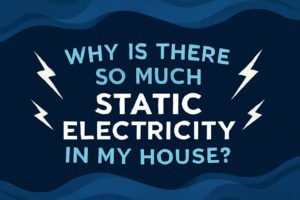An FHA loan is a mortgage insured by the Federal Housing Administration, tailored especially for first-time homebuyers or those with less-than-perfect credit. It enables individuals to secure a mortgage with a lower down payment, often just 3.5% and more lenient credit requirements.
FHA loans have empowered millions to enter the housing market who otherwise couldn’t qualify for conventional loans. If you’re asking, “How do I find FHA-approved homes for sale?”, understanding the loan first is critical it sets the stage for every decision afterwards.
Key FHA Loan Features:
- Low down payment (as low as 3.5%)
- Lower credit score requirement (580+ typically)
- Backed by the U.S. government
- Fixed or adjustable rate options
- Popular for first-time buyers
What Makes a Home FHA Approved
Not all homes qualify for FHA financing. The property must meet certain FHA appraisal standards and safety criteria to ensure the home is livable and structurally sound.
Basic FHA Approval Criteria for Homes:
- Must be a primary residence
- Must pass an FHA appraisal
- Free from major hazards (mould, lead paint, structural damage)
- Proper heating, water, and electrical systems
- The roof and foundation are in good shape
The HUD (U.S. Department of Housing and Urban Development) maintains a list of FHA approved properties and also enforces these criteria to protect buyers and lenders.
Step-by-Step: How to Find FHA-Approved Homes for Sale
Here’s your guided roadmap to successfully find and purchase a home that qualifies for FHA financing.
1. Understand FHA Loan Limits in Your Area
Loan limits vary by county and state. Before browsing listings, check the FHA loan limit in your area via the This ensures you’re shopping within your financing range.
2. Use the HUD Homes Search Tool
HUD Homes are foreclosed properties previously financed with FHA loans. These homes are resold by HUD and typically priced below market value.
- Visit HUDHomestore.gov
- Use filters for location, price, and property type
- Look for “FHA Insurable” homes
3. Work With an FHA-Savvy Real Estate Agent
Not all agents understand FHA requirements. Find one who:
- Specialises in FHA buyers
- Knows how to search FHA-approved properties
- Can guide you through the appraisal process
4. Check MLS Listings with FHA Filters
Many local Multiple Listing Service (MLS) websites allow you to filter by FHA eligibility. Use terms like:
- FHA OK
- FHA approved
- FHA financing available
This saves time by showing only eligible listings.
5. Review the Property’s Condition
Even if the listing says “FHA eligible,” always have a licensed inspector review the home. The FHA requires:
- No peeling paint (especially in pre-1978 homes)
- Functional plumbing and electric systems
- No tripping hazards
6. Get Pre-Approved First
Before house hunting, get FHA pre-approved. This shows sellers you’re serious and makes the purchase smoother.
Benefits of pre-approval:
- Know your exact budget
- Increase offer competitiveness
- Accelerate loan processing
7. Explore Local Housing Authority Listings
Local housing agencies sometimes list FHA-eligible homes or first-time buyer programs. These programs often offer:
- Down payment assistance
- Access to FHA-ready homes
- Homebuyer education courses
FHA Home Requirements Checklist
| Requirement | Description |
|---|---|
| Ownership | Must be owner-occupied |
| Condition | No health/safety hazards |
| Appraisal | Must meet FHA value standards |
| Utilities | Must be functional |
| Location | In an FHA-eligible area |
| Structure | Sound foundation and roof |
Use this checklist before making an offer.
Benefits of Buying an FHA-Approved Home
- Easier qualification standards
- Lower down payments
- Competitive interest rates
- Option to roll in closing costs
- More buying power with less cash upfront
Common Mistakes to Avoid When Buying FHA Homes
- Skipping the home inspection
- Overlooking appraisal conditions
- Not confirming FHA status with the lender
- Making non-FHA-approved offers
- Forgetting to budget for repairs
Stay ahead by knowing the rules and working with professionals who understand the FHA process.
FHA vs. Conventional: Which is Right for You?
| Feature | FHA Loan | Conventional Loan |
|---|---|---|
| Down Payment | 3.5% | 3%-20% |
| Credit Score | 580+ | 620+ |
| PMI Required | Yes | Maybe |
| More Flexible | Yes | ❌ |
| Best For | First-time buyers | Strong credit buyers |
Choose based on your financial situation and long-term goals.
FHA Loan Myths You Shouldn’t Believe
- You can only use FHA once (FALSE)
- FHA homes are always fixer-uppers (FALSE)
- You need perfect credit (FALSE)
- FHA loans take longer (FALSE)
The truth is, FHA loans are competitive and can close as quickly as conventional ones.
Real-Life Success Stories of FHA Homebuyers
John and Maria, first-time buyers in Texas, used an FHA loan to purchase their first home with only $7,000 down.
Nina, a single teacher in Ohio, secured a 3-bedroom home thanks to FHA’s lower credit requirements.
These stories are proof that FHA loans make homeownership real for everyday people.
FAQs
1. How can I check if a home is FHA-approved?
Ask your agent, lender, or check the HUD website. You can also ask the seller directly.
2. Can I buy a fixer-upper with an FHA loan?
Yes, using the FHA 203(k) loan, which allows for renovations.
3. Do condos qualify for FHA loans?
Only if they are in FHA-approved condo developments listed by HUD.
4. Is an FHA loan only for first-time buyers?
No, but it’s popular among them due to low down payments and easier qualification.
5. Can I use gift money for the down payment?
Yes, as long as it comes from an approved source (family, employer, etc.).
6. How long does it take to close an FHA loan?
Typically 30-45 days, similar to conventional loans.
Conclusion
Finding FHA-approved homes for sale doesn’t have to be confusing or overwhelming. By following the 7 smart steps, working with the right professionals, and staying educated, you can confidently secure an affordable, FHA-friendly home.
Whether you’re a first-time buyer or just need flexible financing, FHA loans open the door—literally—to new opportunities.











